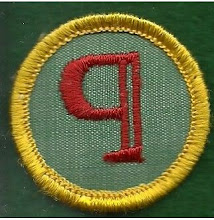I can only think of only one famous and/or rich
editor: Jacqueline Kennedy Onassis, who was famous and rich long before she
went to work for Viking Press and later, Doubleday. Of course, there is a list:
http://www.ranker.com/list/list-of-famous-book-editors/reference (Number
fifteen is Jacqueline Kennedy Onassis.)
I'm sure she had assistants. I wish I did, but alas,
I am my own minion. I would love to have someone to sort through the slush pile
for me the way I did when I worked at the bottom of the minion heap as an editor's
second assistant. I read submission letters, sample chapters and manuscripts,
prescreening them for the editor's assistant, who would review my
recommendations and decide what to present to the editor.
The editor would take on a story from a
first-time-author with no agent if the story was compelling, even if the
writing was horrendous. He'd speak to the author and see if they understood and
could handle substantive editing
For the record:
PROOFREADING is correcting basic errors: typos,
spelling, grammar, punctuation, verb tense and subject-verb disagreement,
errors in word use, checking copyright issues -- and in the digital age,
checking hyperlinks.
COPYEDITING is checking style and consistency, which
includes the above, plus: formatting (typestyle, consistent construction for
lists, headings, citations, footnotes/endnotes, Bibliography); fact-checking;
cross-checking citations, figures, tables with references/source materials;
suggesting improvements in syntax for clarity and logical flow. In addition,
for fiction: arc of action, dialogue, word choice, POV, sentence structure,
clarity.
SUBSTANTIVE EDITING is polishing a manuscript, all
of the above, plus: make relatively minor changes; recommend what to delete,
rearrange, reword; query author about gaps, contradictions, inconsistencies;
polish prose -- suggest clearer phrasing, smoother, better flow of ideas;
review copy by multiple authors for consistency.
DEVELOPMENTAL EDITING is working with the author
from the idea or early draft stage; this could include ghostwriting or co-authoring
a manuscript. Often the proofreading and copy editing is done by another
editor.
The publishing house I worked for handled both
fiction and non-fiction and I quickly learned that EDITING NON-FICTION is a
different than EDITING FICTION. Editors who work with legal, medical and
academic papers have a different task -- make the writing clear without
changing the meaning of the text.
We might abhor using adverbs in fiction: my English
teacher would circle “slowly”, and I would rewrite: “He walked slowly” would
become “He dawdled... lingered... dragged his feet... moved slow as a snail on
a cold sidewalk...” However, when a doctor writes “slowly” in a professional
paper, presumably that's exactly what she means. My edit would be to quantify “slowly”
(“5cc/hour?”)
When I started in the business, at least a half-dozen
people reviewed a manuscript on the way to publication: an agent, an assistant
editor or two, an editor; the typesetter, the proofreader at the type house,
and of course, the author, who would review galley proofs.
The agent's job was to smooth the path so the author
could write. We had lunch meetings, the editor, the author, the agent, and
(eventually) me. I got to know the author.
But now, an editor or two at the publishing house,
perhaps an agent, and the author are responsible for pushing the manuscript to
publication. Sometimes it's just the author trying to release an eBook and
discovering that it's neither cheap nor easy.
I've never met the authors I work with; we do all
our work online. A few years ago one of the authors I worked with was startled
to find out that I was a woman; we'd worked on three manuscripts
together, all tough-as-nails detective stories. He said, "Your editing voice is very masculine." My response was, "Your protagonist is a man's man, I'm editing as if I were him reading about himself."
Why work as an editor? I edit because I live to write.
I've always written and I've always edited, even correcting the grammar and
punctuation in my mother's letters to her friends and sisters. I used a red
pencil, proudly purchased at the stationery store for just that purpose. I must
have been a real pain, but mom would send the letters off with my copy edits in
place. Wish I still had those letters; I wonder how well I did editing mom's
prose.

No comments:
Post a Comment